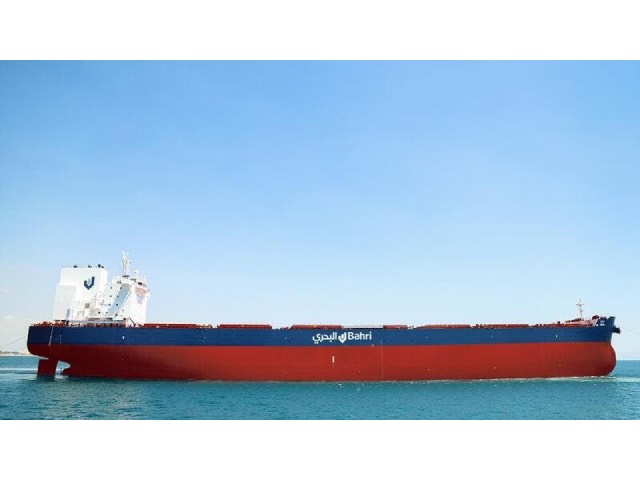Bahri, a global leader in logistics and transportation, has announced that it has taken delivery of the new dry-bulk carrier ‘Sara.’ Built by Hyundai Vietnam Shipbuilding (HVS), a subsidiary of Hyundai Mipo Dockyard Co. Ltd. (HMD), the vessel increases the company’s fleet of dry-bulk carriers to six ships in line with its efforts to expand its marine capabilities and maintain its position as a leading dry-bulk carrier both regionally and globally.
The new Kamsarmax-class vessel is the first ship received as part of the agreement signed between Bahri Dry Bulk and South Korea’s HMD in August 2017 to build and deliver four new dry-bulk carriers by 2020.
Eng. Abdullah Aldubaikhi, CEO, Bahri, commented: “This new vessel represents an important addition to our fleet, and for Bahri Dry Bulk in particular, as it reinforces our position as the foremost dry-bulk logistics provider in the region and beyond. The delivery comes against the backdrop of the global COVID-19 pandemic, underlining our commitment to expanding our business and upgrading our services, even in the most challenging of times. By further strengthening our fleet, we look to forward to enhancing our position as an industry leader and contributing to the Vision 2030 goal of establishing Saudi Arabia as a global logistics hub connecting three continents.”
The new vessel ‘Sara’ was built at the Hyundai Vietnam Shipbuilding dockyard in Vietnam under the latest international technical specifications. The environmentally friendly ship has been developed to offer the highest standards of comfort, safety, and fuel efficiency, with a design draft speed of 14.20 knots at normal continuous rating (NCR) with a 15% sea margin.
The new carrier will serve the growing demand in the Kingdom of Saudi Arabia for imports of basic grains, such as wheat, barley, corn, and other dry-bulk cargoes. The four new dry-bulk carriers have been ordered to fulfill the needs of consumers in the Saudi market and the wider region, together with international companies that import grains to the Kingdom.









































